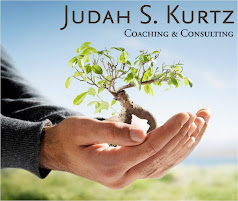There is an art to the act of surrender. It requires a belief that all will work out
for the best (successes and lessons), and having trust and faith in ourselves,
others, and/or something larger than us.
This is no simple feat, yet it can be much easier than we make it if we “allow”
it to be.
I am a master of scenario planning. When faced with a decision, challenge, or
even a possible situation, I identify and examine all the potential outcomes I
can imagine. With that, I work backward
and distinguish the issues that might arise, the resources I have and may
require, and what choices I will need to make – all the way up to the immediate
moment.
While this might sound like intelligent strategizing and
preparation, it can be maddening and a source of worry and stress. Particularly when these scenarios are only
possibilities, or when I only have limited information. I can put myself on a hamster wheel, turning
the thoughts over and over looking for holes and missing pieces to the
potential outcomes and courses of action.
I recognize that while there are unknowns, I can make some reasonable
assumptions and plan accordingly.
This vigilance (or hyper-vigilance) is useful to a point,
but it is also detrimental. It takes
away from being present and fully able to objectively see all points as they
arise. If our minds are directed toward
a particular course, set of criteria, or potential warning signs and triggers,
we are more likely to see only that. There is a need for certainty and a sense of
control, attempting to be adequately prepared for most any situation.
However, there needs to be a balance. The motto of the US Coast Guard has always
resonated with me – semper paratus (“always ready”) -- and I have lived much of
my life by that. However, as I’ve witnessed
all the stress and worry I inflict upon myself over the years, I am finding it
equally important to cultivate this idea of “surrender.” Let me share a metaphor that helps me
visualize this act of “letting go.”
Imagine yourself in a small canoe on a wide, powerful
river. You have a pair of oars and are paddling
madly, attempting to direct yourself upstream.
You are struggling and sweating to row against the current, fighting to move
in the opposite course from where the river is taking you. You suffer and stress for fear of what’s
around the bend and are doing your best to resist, defend, and survive.
Now imagine that this river is life, a journey, and your
situation. That there will be many
twists and turns ahead that you can’t quite see, but the river is your friend. Any waterfall or jagged rocks you meet are
there for you to navigate around and through, and you get greater experience
and wisdom with each encounter. You and
your little canoe are safe, and you can trust it will be a wild ride
that can be fun if you let it be. But
also know this: the river is going to take you there whether you like it or
not. You can struggle and suffer and fight
the current, or you can take a different tack.
Take a deep breath, mustering the strength and courage to
have faith and trust in you and life. Picture
yourself pulling your oars into your canoe, surrendering and allowing the river
to carry you, whatever may come. This
does not mean that you can’t consider the “what ifs” and potential scenarios
and make some preparations (steering the canoe with your oars). But it will allow you to let go, relax, and
pay greater attention to the scenery as its occurring. Calm and focus will better allow you to effectively
respond to whatever arises than you having your head down with your arms frantically
paddling against a powerful force.
I might say carpe diem (“seize the day”) as a Latin companion
to semper paratus, recognizing that there is a balance between being prepared
for the unforeseen future, while drinking in the now and relishing its fragrant
bouquet. However, I think I’d prefer to
close with a quote from the 1986 film character, Ferris Bueller: “Life
moves pretty fast. If you don't stop and look around once in a while, you could
miss it.” If you keep focus on fighting
the current, you’ll miss out on not only life, but the many signs along the way
that can help you navigate your journey.








1 comment:
Hi Judah Buddha (love the name), I recently discovered your blog and enjoy your perspective. I too am a planner, and have lately begun to realize the same thing you say in your post - that because of all the constant "what if" scenarios I create, I am not present to the moment. Thanks for the gentle reminder. Happy Thanksgiving!
Post a Comment